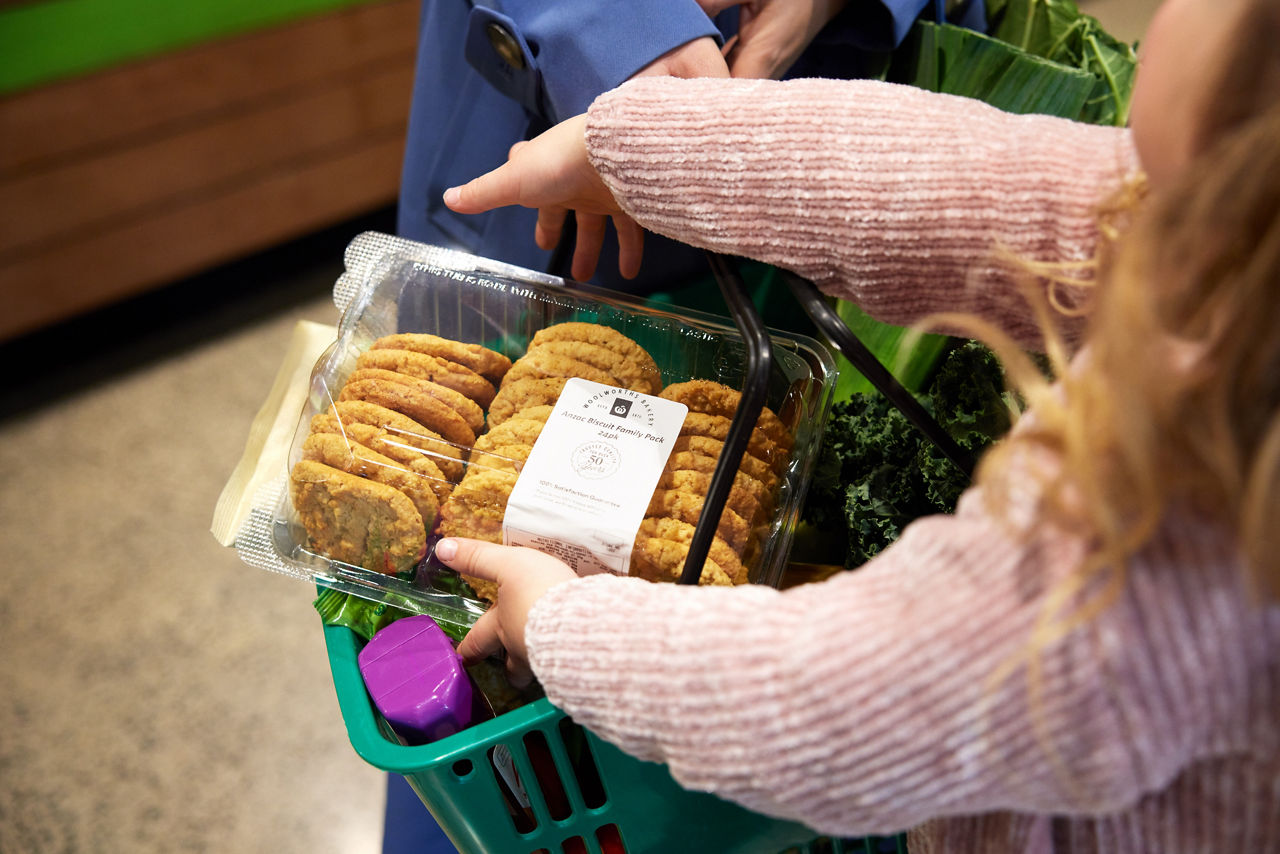Woolworths Group is considering any potential impact of the current unavailability of the instore soft plastics recycling program on our sustainability goals. Our ambition remains to make our own brand packaging widely recyclable, reusable or compostable, and we are working through soft plastics recycling solutions as part of an industry and government taskforce.
Our customers tell us that one of their top concerns is packaging waste; plastic waste, in particular. We are focused on eliminating plastic wherever possible, and working towards closing the loop by encouraging recycling through design, technology and clear communication to our customers and suppliers.
The number one challenge to our business in plastics packaging continues to be fruit and vegetables. More than any other product category, packaging is a critical part of food safety and quality, protecting produce in transit, extending shelf life and reducing food waste.
In seeking to positively impact our planet, we are partnering with industry to reduce the use of virgin plastic and increase the amount of recycled content in our own brand packaging, while making it easier for our customers to recycle and influencing our value chain to do the same.
We continue to trial innovative solutions in this space.
Woolworths Supermarkets and BIG W delivered on our commitment to stop selling 15-cent plastic bags in Australian stores and online, in 2023. This equates to approximately 221 million plastic bags removed from circulation annually. In F23, Woolworths New Zealand removed single-use plastic produce bags in line with government regulation, accounting for 50 million bags (85 tonnes) used in stores annually.
